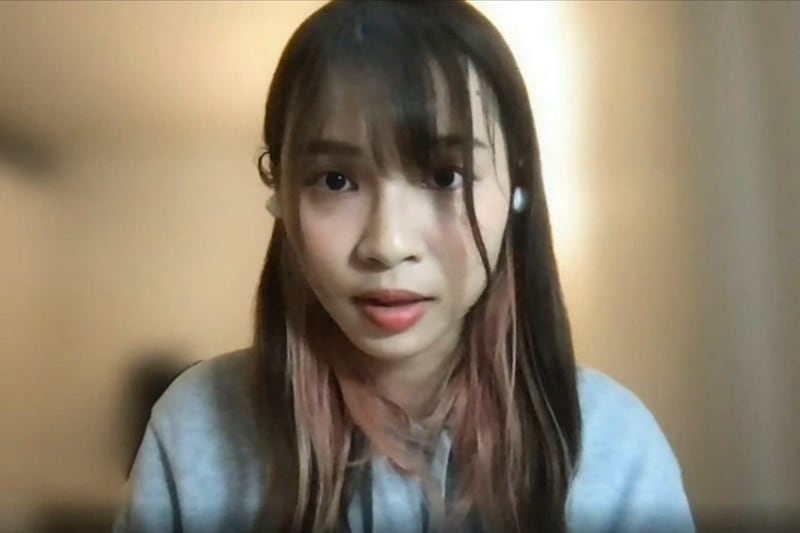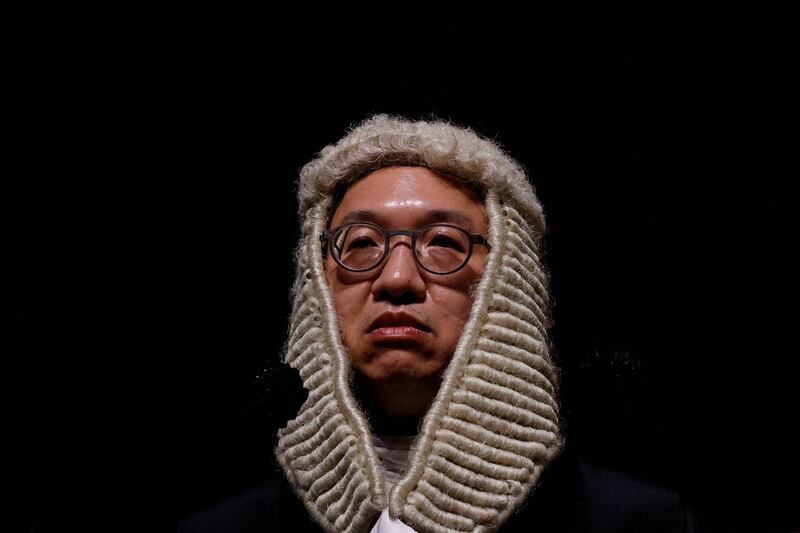New national security legislation will make it harder for detained suspects to meet with their lawyers and could target journalists and media organizations for interviewing them, Hong Kong officials have revealed in recent comments aired by a pro-China broadcaster.
Suspects in national security cases, who are typically people who have opposed the government via their public speech or peaceful actions, could be seeking to stay in touch with “accomplices,” by requesting to see their lawyer, who might also be a member of their “group,” Secretary for Justice Paul Lam told TVB’s “Speak Clearly” talk show at the weekend.
“As a result, they could continue with activities that endanger national security under the guise of seeing a lawyer,” said Lam, whose government launched a public consultation on the new law, which the city is obliged to enact under Article 23 of its Basic Law, its mini-constitution since the 1997 handover to Chinese rule.
The Article 23 legislation was recently rebooted following a 20-year hiatus in the wake of mass popular protests, and is being billed by the government as a way to close "loopholes" in the already stringent 2020 National Security Law, which was imposed on the city by Beijing in response to the 2019 protest movement.
The Safeguarding National Security Ordinance – which will criminalize "treason," "insurrection," the theft of "state secrets," "sabotage" and "external interference," among other national security offenses – is highly likely to be passed by the Legislative Council now that electoral rules have been changed to allow only "patriots" to run for election.
Lam also warned of tougher penalties for media organizations that interview people wanted by the Hong Kong government.
“They could be seen as providing a platform and aiding and abetting them,” he warned, calling on the media to be “careful.”

Hong Kong has already plummeted in press freedom and overall freedom indexes since launching a post-2019 crackdown on dissent, and has placed a number of high-profile journalists including Next Digital mogul Jimmy Lai on trial for "national security" offenses linked to newspaper articles.
The new legislation could also target people deemed to be using too confrontational a “tone” to criticize the government in public life, Secretary for Security Chris Tang told the show.
“You can criticize the government, but if you keep repeating yourself and spicing it up, using your tone of voice for example to deliberately stir up people’s emotions, that could be regarded as inciting hatred [of the authorities],” Tang warned, but said that would only happen in cases where there was “criminal intent.”
‘Intimidation on a huge scale’
Current affairs commentator Sang Pu, who is also a lawyer, said that such assurances can’t be trusted, however.
“The Hong Kong government, the national security police and the Department of Justice have very loose criteria for determining criminal intent,” Sang said. “Basically, there is criminal intent if they say there is.”
“A lot of people will come under that definition, which will be extended [under this legislation],” he said.
He said the new law could spell the end of independent political commentary about the city, even beyond its borders, as overseas commentators still have friends and family back home who could be put under greater pressure as a result of their comments.
“This is intimidation on a huge scale, and is totally designed to eliminate any voice that tries to provide oversight of the government.”

To Yiu-ming, a former assistant journalism professor at Hong Kong’s Baptist University, agreed, saying that officials are clearly targeting political commentators, exiled and wanted Hong Kong activists, media organizations and journalists.
“This is clearly about political law enforcement,” To said. “The Hong Kong government doesn’t want the voices of exiles and wanted activists to be heard back in Hong Kong.”
“It’s being done so as to allow law enforcement agencies to have the option, if needed, to cause trouble for certain reporters they don’t like and prevent them from doing their jobs,” he said.
Eric Lai, research fellow at the Asian Law Center at Georgetown University, said that while the consultation document isn't a final draft, the details revealed so far suggest that the media is a major target of the law.
“The Article 23 legislation incorporates some elements of the [planned] fake news law into its text,” Lai said.
“According to the consultation document, if you interview people wanted [by the authorities], or publish some remarks that are considered to endanger national security, you could be prosecuted,” he said.
“The devil is in the details,” he said. “If all of these provisions are included [in the final draft], it will certainly have a huge impact on press freedom.”
‘More stringent’ than the mainland
Patrick Poon, human rights researcher currently at the University of Tokyo, said that even mainland Chinese law hasn’t banned overseas news organizations from interviewing its dissidents overseas.
“People inside China face the biggest pressures and the highest risks if they give interviews to foreign journalists,” Poon said. “[Now], it could be risky for foreign journalists to interview people in exile, which is even more stringent than some of the practices in mainland China.”
He said the potential restrictions on allowing meetings with a national security detainee’s lawyer is a violation of international law and human rights standards.
He said the Hong Kong authorities wouldn’t be able to guarantee a fair trial to suspects under such an arrangement.
State news agency Xinhua hit out at the criticism of the Article 23 legislation in a Feb. 3 commentary, describing critics of the law as “ants on a hotpot.”
“They’re falling over each other to attack and smear [this] legislation,” the article said. “People who love China and Hong Kong won’t feel the slightest bit worried ... [but] will support its completion as soon as possible.”
It accused “anti-China and disruptive elements in Hong Kong” of “seriously undermining Hong Kong’s stability and endangering national security,” warning that they will face prosecution and prison as a result.
“These anti-China disruptors in Hong Kong do not want to be upright Chinese people, but want to be slave-dogs driven by the enemy,” the article said, warning that the new law will make them into “homeless dogs” without “foreign masters” to rely on.
Translated by Luisetta Mudie .

